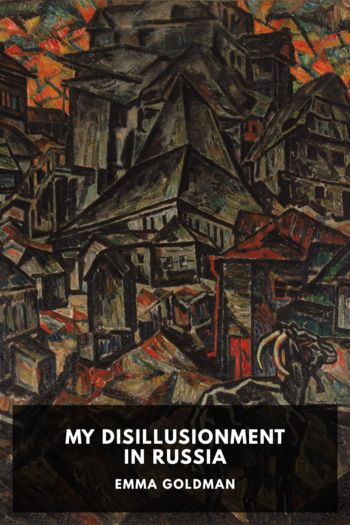Journey from St. Petersburg to Moscow Irina Reyfman (snow like ashes .TXT) 📖

- Author: Irina Reyfman
Book online «Journey from St. Petersburg to Moscow Irina Reyfman (snow like ashes .TXT) 📖». Author Irina Reyfman
Where are you, O beloved friend! Where are you? Come to converse with me about the great man. Come that we may weave a crown for this cultivator of the Russian language. Let others, fawning before power, extol strength and might with their praise. We—we will sing a hymn to the service done for society.
Mikhailo Vasilyevich Lomonosov was born in Kholmogory…. Since he was born to a man who could not give him an education through which his understanding would be sharpened and adorned by useful and pleasant knowledge; limited by virtue of his station to spend his days among people whose intellectual horizon did not extend beyond their trade; destined to divide his time between fishing and attempts to receive payment for his labor—young Lomonosov’s mind could not attain the scope that he acquired when laboring on natural experiments, nor could his voice reach that sweetness which it acquired from consorting with the pure Muses. From the education in his parental home, he took something modest that was in fact the key to learning—a knowledge of reading and writing; and from Nature—curiosity. And this, Nature, is your triumph. Avid curiosity, instilled by you in our souls, aspires to the knowledge of things; and a heart burning with the love of glory cannot abide the shackles confining it. The heart roars, boils, groans, and, smashing the shackles in a single blow, flies headlong (nothing to stop it) to its purpose. Everything is forgotten, the mind has only this purpose; by this we breathe, by this we live.
Not letting the coveted subject out of his sight, the youth amasses a knowledge of things from the most meager streams of the source of learning flowing down to the lowest levels of society. Lacking the supervision needed to make rapid progress in knowledge, he hones and adorns memory, the primary strength of his mind, in such a way as to sharpen his reason. The narrow scope of knowledge he could acquire in his birthplace was unable to slake his parched spirit, but rather more ignited in the youth an insuperable striving for learning. Blessed is one who at the age when for the first time the tumult of passions takes us out of a state of insensibility, when we near a condition of maturity, whose aspiration turns to the understanding of things.
Incited by an avidity for knowledge, Lomonosov leaves his parental home; goes to the capital city, comes to the dwelling of monastic Muses, and takes his place among the number of youths dedicating themselves to the study of the liberal arts and theology.122
Knowledge of languages is the gateway to learning, but it looks like a field seeded with thistle and like a mountain covered by daunting rocks. The eye does not find here a pleasantness of arrangement, and the traveler’s feet do not find calm smoothness for resting, nor is there a greening shelter for the tired person. So it is that a student, having approached a new language, is accosted by diverse sounds. His larynx grows tired by the unaccustomed gurgling of breath emitted from it, and his tongue, forced to twist in a new way, is exhausted. The mind then seizes up, reason grows weak without activity, imagination loses its wings; only memory stays alert and sharpens and fills all its crannies and nooks with the images of hitherto unknown sounds. In learning languages, everything is disgusting and burdensome. If hope did not reassure one that, after habituating one’s hearing to unusual sounds and mastering alien pronunciation, the most pleasant subjects would open up, it would be impossible to expect anyone to want to embark on such a daunting path. But once these difficulties have been overcome, how many times will perseverance in labors endured be rewarded. New views of nature are revealed, a new chain of fantasies. Through the learning of an alien language, we become citizens of the region where it is spoken, we converse with people who lived many thousand centuries ago, assimilate their ideas, and the inventions and thoughts of all peoples and ages we combine and render in a single connection.
Persistent application in the learning of languages made Lomonosov a fellow citizen of Athens and Rome. It was thus that his perseverance was rewarded. Like a blind man, unseeing of the light since coming out of his mother’s womb, when, owing to the skilled hand of an eye doctor, the majesty of the daytime luminary begins to shine for him—with a rapid glance he runs through all the beauties of nature, marvels at its variety and simplicity. Everything captivates him, everything amazes. He feels its grace more vividly than do eyes accustomed to seeing, experiences delight, and goes into raptures. It was thus that Lomonosov, after receiving tuition in the Latin and Greek languages, devoured the beauties of ancient





Comments (0)